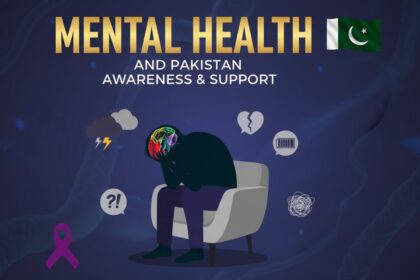Strengthen the Pakistan Economy with Digitalization and E-Commerce
Nadeem Iqbal, Professor National Skills University Islamabad
Pakistan, with its vibrant youth and strategic location, holds immense potential to bolster its economy through vitalization and e-commerce. These sectors drive growth, create jobs, and connect Pakistan to global markets. Technologies like artificial intelligence and blockchain are
reshaping business practices, enabling Pakistan to leverage the digital revolution for economic
prosperity.
Pakistan’s economy, rooted in agriculture, industry, and services, faces challenges like
unemployment and energy shortages. Remittances are a vital lifeline, strengthening foreign
exchange reserves. In 2024, remittances neared $30 billion, supporting economic stability and
household spending. Internal resources, such as minerals and tourism, contribute significantly,
but their full potential relies on a skilled workforce and robust digital infrastructure.
Online businesses are transforming Pakistan’s economic landscape. E-commerce platforms
like Daraz and HBX empower small businesses to reach global consumers, boosting revenues
and providing consumer convenience. These platforms generate employment, particularly for
youth and women, who achieve financial independence through home-based work, driving
economic progress.
Digitalization enables dollar earnings through online businesses and services. Freelancing
platforms like Upwork and Fiverr allow Pakistani professionals to offer web development,
digital marketing, and graphic design services. In 2024, IT exports and freelancing earnings
surpassed $3.5 billion, reflecting global demand for Pakistani talent. These earnings enhance
foreign exchange reserves and improve individual livelihoods.
Digital infrastructure is critical for e-commerce growth. High-speed internet, mobile banking,
and payment systems like Easypaisa and JazzCash have fueled online businesses. Government
initiatives, such as the Digital Pakistan Vision and expanded fiber optic networks, enhance
digital access in rural areas, connecting small businesses and freelancers to global markets and
fostering economic diversity.
Digital skills training is pivotal for youth employment. Online courses in programming, digital
marketing, and data analytics equip youth with skills for freelancing and e-commerce success.
These skills enable them to earn dollars from home, reducing unemployment and integrating
Pakistan into the global digital economy, thus strengthening economic resilience.
The BS Fintech and E-Commerce program at the National Skills University (NSU) Islamabad
is an ideal blend of business and technology. This four-year program teaches online banking,
blockchain, and digital marketing. Practical training and internships, supported by industry
partners like Habib Microfinance Bank, prepare students for the job market. The program
enables earning while learning, as students can start freelancing or e-commerce ventures during
their studies, fostering financial independence.
NSU’s program aligns with global digital trends, offering skills in cloud computing, machine
learning, and e-commerce platforms. Graduates secure roles in startups, banks, and tech firms,
bolstering Pakistan’s digital economy. This learn-and-earn model empowers youth to
contribute to economic growth while pursuing education.
Digitalization and e-commerce are key to strengthening Pakistan’s economy. Online
businesses, freelancing, and digital services enhance global competitiveness. NSU’s BS
Fintech and E-Commerce program equips youth to seize these opportunities, combining
learning with earning to drive economic prosperity and national progress.











